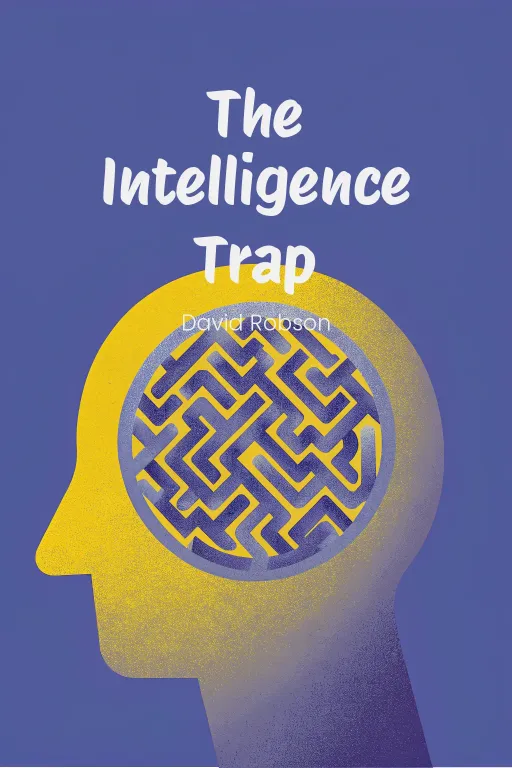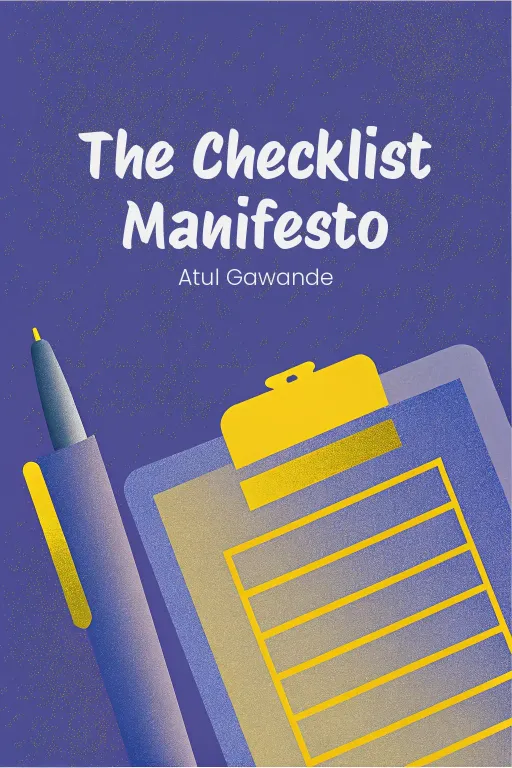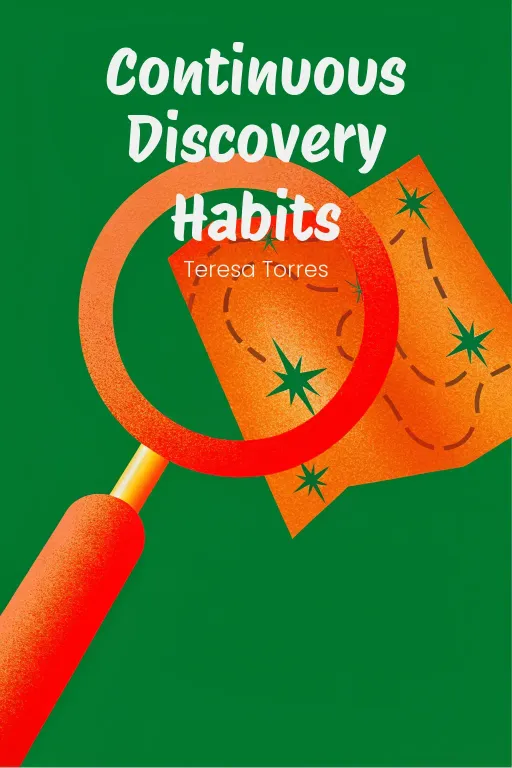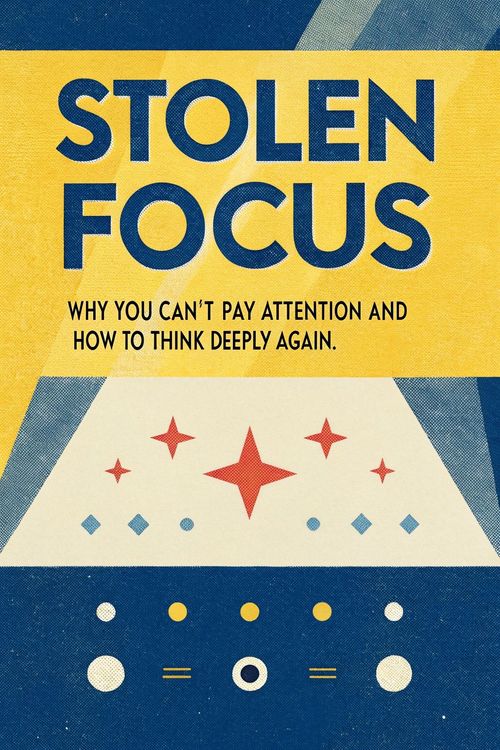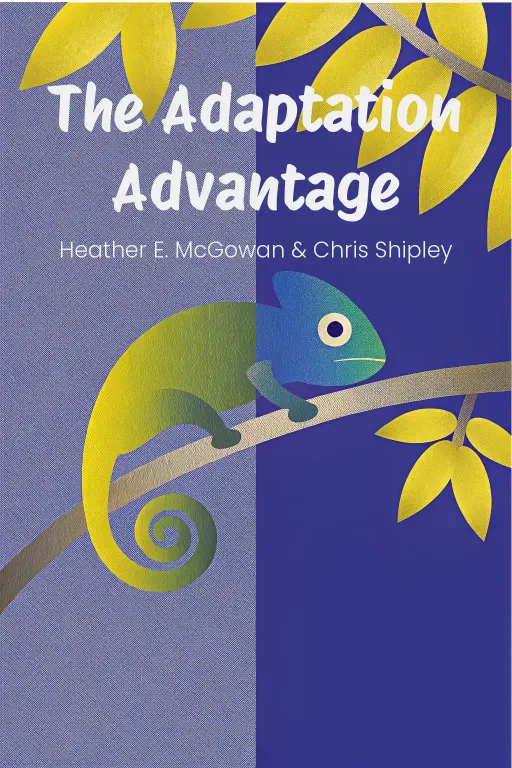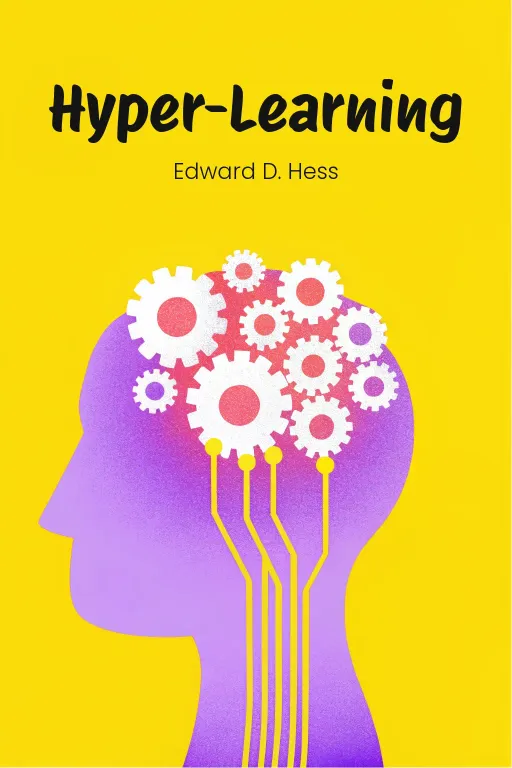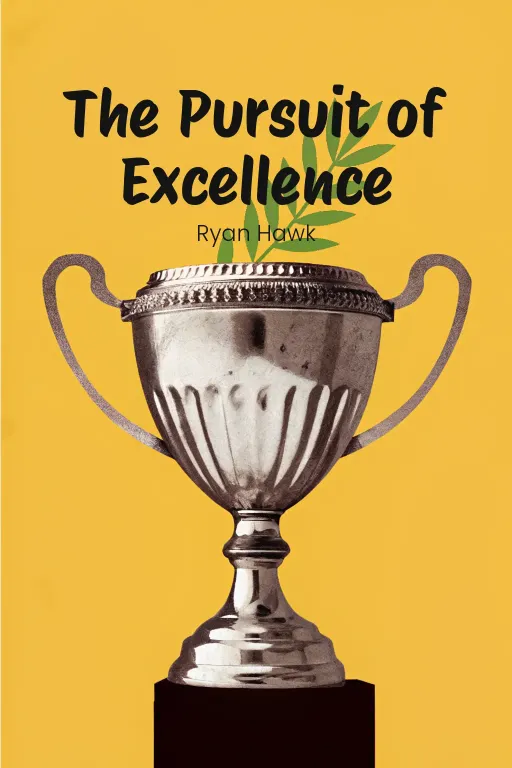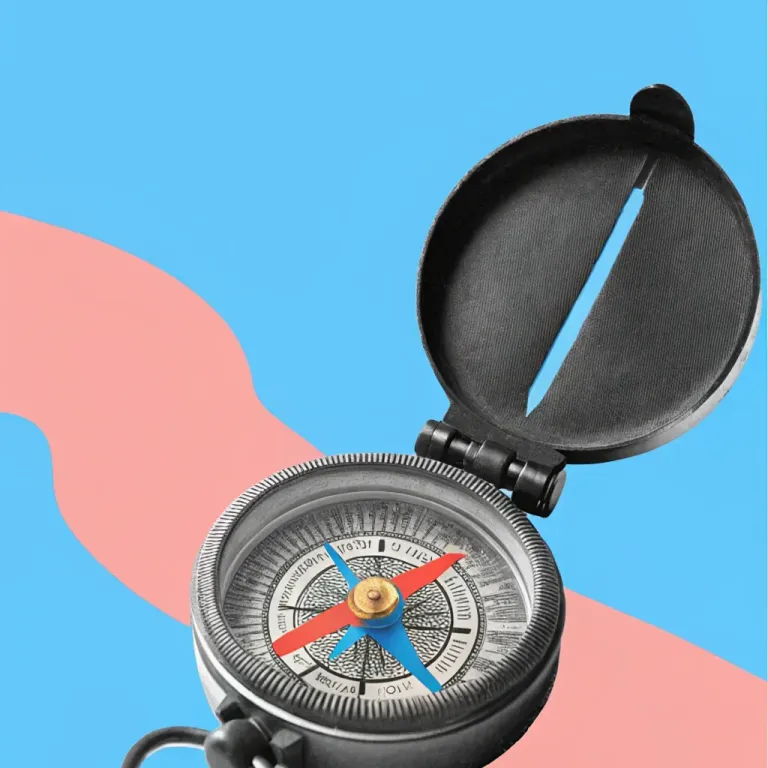
Design Your Best Life: Key Choices Now!
Podcast by Next Level Playbook with Roger and Patricia
Finding Fulfillment Using Lessons From Some of the World's Greatest Businesses
Design Your Best Life: Key Choices Now!
Part 1
Roger: Hey everyone, welcome back! Today, we're diving into what I think is a truly life-changing book: “How Will You Measure Your Life?” by Clayton Christensen, James Allworth, and Karen Dillon. If you've ever caught yourself wondering, "Am I on the right track?" or "Are my choices actually lining up with what I believe in?", then this episode is definitely for you. Patricia: Absolutely, Roger. And honestly, those are the kind of massive questions that can feel, well, a bit paralyzing, right? What I appreciate about this book, though, is that it doesn't just leave you hanging with these big ideas. It blends really relatable personal stories and business case studies with practical guidelines. That way, you can start actively shaping your life around what’s truly important. That’s not bad at all. Roger: Exactly! The core of Christensen's message is that real fulfillment doesn't come from just chasing promotions or ticking off boxes on some societal checklist. It's about really understanding what drives you, how you spend your resources—time, energy, money—and the quality of your relationships and the values you stand for. Patricia: Right. And what's especially interesting is that we're going to explore this through three key areas: first, what “actually” makes us happy in our work; second, how empathy and shared beliefs strengthen our relationships; and third, integrity—as the guiding principle that keeps everything aligned. Think of it as your personal, ethical GPS. Roger: Couldn't have said it better myself, Patricia. And Christensen really goes beyond just giving advice; he gives real frameworks. So we’ll be looking at ideas like the "jobs to be done" theory, why we sometimes pour effort into the wrong things. And we'll also be talking about those tough moments that really test our ethics. It's going to be a really eye-opening conversation. So, let's get started! Patricia: Hopefully, Roger, by the time we're done here, I'll have at least a “clue” how to measure my own life... without, you know, spiraling into a full-blown midlife crisis.
Finding Happiness in Your Career
Part 2
Roger: Okay, so picking up where we left off, let's really dive into that first key lens: finding happiness in your career. And to kick things off, Christensen makes this super compelling argument about understanding what “really” drives our happiness—through motivation, right? He uses Herzberg’s two-factor theory to explain this, breaking it down into hygiene factors and motivators. Patricia: Okay, I'm listening. “Hygiene factors”—they sound important, but I'm guessing they're not the whole picture here? Roger: Exactly, Patricia! Hygiene factors are basically the basics: salary, job security, a decent boss. These are the things that, if they're missing, can make you utterly miserable. But here's the twist, even if you improve every single one of them, they won't necessarily make you happy. Patricia: So, it's like upgrading your phone. Sure, it's nice to get the newest model, but six months later, you're annoyed by the same buggy autocorrect. You know? Roger: Right! They don’t address what truly drives long-term satisfaction. Herzberg refers to them as motivators. Think meaningful work, opportunities for growth, recognition for your effort—these are what touch your core sense of purpose and help you feel engaged and fulfilled. Patricia: Got it—so hygiene factors stop you from being miserable, but motivators are what actually make you happy. Roger: Exactly. Christensen illustrates this beautifully with the example of Diana, right? An analytical chemist at CPS Technologies. He saw how her emotional state at work directly impacted her home life. On days when her work felt undervalued or she was overly burdened, that sense of frustration followed her home, affecting her interactions with her kids. But when her workdays were fulfilling, when she felt respected and accomplished, she brought this positivity home with her. Patricia: That's so relatable! I mean, how many times do you hear people say, "I'm too stressed from work to enjoy family time?" But it's interesting because it flips the script from "Work-life balance is entirely about time," to "It's also about the emotional energy you carry across those boundaries." Roger: Exactly right! What Christensen reminds us is that fulfillment doesn’t come from adding another zero to your paycheck - it's about doing work that feeds your intrinsic need for purpose and recognition. Patricia: Okay, but here's my question: How does someone figure out if they're prioritizing the wrong things? I mean, there’s so much pressure to chase those hygiene factors - higher pay, fancier title, better corporate perks. How do you step back and reevaluate? Roger: That’s where Christensen’s advice gets practical. He suggests asking yourself, does my work align with my personal values? Am I engaged in what I do every day? And do these goals I’m chasing contribute to my long-term happiness, or are they just short-term wins? Patricia: Hmm, I like that. It’s like a gut-check to see if your ladder’s leaning against the right wall. Roger: Exactly. But even after you’ve clarified your motivators, there's another layer to consider... the balance between planning and adapting. Christensen dives into the tension between deliberate strategies, where you meticulously map out your goals, and emergent strategies, which are about embracing unexpected opportunities. Patricia: Oh, I love this part, because it's so counterintuitive, right? I mean, we're told all the time to "plan your work and work your plan." But life's curveballs don't always respect spreadsheets, do they? Roger: Not at all. And that's where the Honda example comes in as such a powerful case study. In the 1960s, Honda tried to break into the U.S. market with big motorcycles to compete with Harley-Davidson. A deliberate strategy, very planned out. But it bombed—oil leaks, low sales, the whole thing was a mess. Patricia: Ouch. So what, a Japanese brand learns the hard way not to mess with Harley's turf? Roger: Not quite! What happened instead was fascinating. Honda’s employees started casually riding their smaller, lighter Super Cubs for fun around the city. Americans noticed, got curious, and it turned out there was a huge untapped market for off-road, affordable motorcycles. Honda pivoted—scrapping their initial plan—and leaned into the emergent opportunity, leading to huge success. Patricia: That’s a great example. I mean, talk about turning failure into advantage. It’s like finding gold where you weren’t even digging. Roger: Exactly. And Christensen applies the same idea to personal careers. He talks about his own path—how he initially aimed to edit The Wall Street Journal but shifted into consulting, entrepreneurship, and eventually academia. Each twist along the way opened doors he hadn’t planned for, but also enriched his sense of purpose. Patricia: So, if I’m hearing you right, the takeaway is: Have a plan, but don’t let it rigidly box you in. Sometimes life knows better than you do what’s going to make you happy. Roger: Precisely! And that brings us to the third and final piece here aligning resources—like your time and energy—with your long-term priorities. I mean, that’s really the glue that holds the other two ideas together. Patricia: Okay, hold up. By "resources," you’re not just talking about work budgets and man-hours, right? Roger: Not at all - this is deeply personal. It’s about how you spend your own most valuable resources: your time, mental focus, and emotional capacity. Christensen uses the example of SonoSite, this ultrasound tech company. They had an innovative handheld product, the iLook, which had massive potential to reshape healthcare. But the sales team chased higher short-term profits by pushing a pricier model instead. Patricia: Ugh, classic corporate greed trumping vision. Roger: Exactly—it’s a perfect illustration of what Christensen calls the “innovator’s dilemma.” When resources are misaligned with larger strategic priorities, even visionary goals can falter. Patricia: And this translates to people how? Roger: Imagine a young professional chasing rapid promotions or bigger paychecks without considering if those achievements align with their broader values. It might feel satisfying in the short run, but over time, they could wake up to find their career totally misaligned with their deeper aspirations. Patricia: So, say I want to realign my resources—how do I actually do that without having to quit my job and go meditate in the mountains? Roger: Christensen suggests starting small. Review where your time and energy currently go and ask if it reflects what truly matters to you. Then, adjust gradually. For instance, if relationships are your priority, allocate more time to nurturing them. Patricia: I like it. It’s about intentionality—and maybe cutting back on Netflix binges, right? Roger: That, too! All joking aside, the message is clear: true career happiness relies on understanding your motivators, balancing plans with flexibility, and making sure your resources are aligned with your most meaningful priorities.
Finding Happiness in Your Relationships
Part 3
Roger: Alright, Patricia, so understanding what drives us professionally naturally leads us to think about how these principles apply to our personal lives, especially to relationships. I think it’s a perfect transition, actually. After all, if you can't nurture your relationships while you're chasing your career goals, you’re probably missing the forest for the trees. Patricia: I agree. If you climb the ladder of success, only to find it leaning against the wrong wall, then what was the point? Roger: Exactly. And Christensen basically argues that relationships are what create lasting happiness. So, today we’re going to break this down by looking at three things. First, the importance of really investing your time and energy into these relationships. Second, identifying the specific emotional needs that those relationships actually fulfill – the "jobs", as he calls them. And, third, how your values play a critical role in actually building solid, lasting connections. Patricia: So, relationships are like the stock market, huh? You gotta know where to invest, and keep an eye on your portfolio? Roger: That’s… one way of putting it, sure. Let's start with why relationships are so important to begin with. Christensen points out that, over the course of your life, it's your family and close connections that often provide the greatest happiness. Yet, they're also the things that get overlooked the most, because people tend to prioritize career achievements, or other short-term wins, over the slower payoff of strong relationships. Patricia: I can already see where this is going. It's the story of his Harvard classmates, right? Those high-achieving, super ambitious people who, on the surface, looked like they had it all figured out, but were secretly struggling in their personal lives. Roger: Precisely! Christensen reflects on how so many of his classmates designed incredible careers but completely neglected their families. And by the time they got to their class reunions, many were filled with regrets, like failed marriages, strained relationships with their kids, or even just a general sense of loneliness, despite all their professional success. Patricia: It’s such a tough paradox, right? Balancing career and family is one of those things that society keeps telling us is just impossible to do. What do we do, then? Are we all doomed to pick one or the other? Roger: Not necessarily. Christensen emphasizes that it really comes down to how you allocate your resources. I mean, time, energy, emotional bandwidth – they're all finite. And, just like in business, if you don't actively put them towards what actually matters the most, like your family, those relationships will start to erode, often in ways you don't even see until it's too late. Patricia: So ignoring your family because, hey, "they're just there", is like letting your plants wilt because you assume they’ll just keep growing without water, right? Roger: Exactly! Christensen actually likens it to taking your family for granted because they’re physically close. Just because you live with someone doesn't automatically mean you're connecting with them. It's those small, consistent actions – like sharing meals together, taking time to actually talk, reading bedtime stories – that cumulatively strengthen those bonds over time. Patricia: But "consistency" sounds like such a grind, though! I mean, life is unpredictable. Can you really prioritize relationships like you would a work project? Roger: Well, that’s the key takeaway. You actually should. Christensen argues that your family deserves the same urgency and commitment that you give your most important deadlines at work. It's about knowing what really brings long-term value, and then deliberately acting on it, even in those small, daily moments. Patricia: Got it. So, the idea is to treat family time less like an afterthought and more like a planned strategy. Alright, speaking of strategy, let's tackle this “jobs to be done” thing. It’s such an interesting way to think about relationships, but I have to say, it does sound kind of… transactional. Roger: I understand why you’d say that, but let’s unpack it a bit. The "jobs to be done" framework is about recognizing why people even enter relationships in the first place. Every connection we have fulfills some specific emotional, or functional, or social need. That’s what Christensen calls the “job” that we're essentially hiring that relationship to do. Patricia: So we “hire” friends to make us laugh, parents to give us advice, and coworkers to help us survive team meetings? Am I on the right track? Roger: More or less, yes. But the idea goes deeper when we actually stop to consider whether we truly understand the "jobs" that our loved ones are hiring us to fulfill. For example, Christensen talks about a father who was struggling to stay connected with his kids because of a demanding career. Instead of just giving up or making empty promises, he created these quick, intentional moments of connection – like "12 Minute Games." These short bursts of play addressed his children's emotional need for quality time, while also working around his constraints. Patricia: I like that. It’s not about carving out hours you don't have; it's about making the most of the moments you do have. Roger: Exactly. And this idea works across all sorts of relationships. Christensen gives the story of Scott and Barbara, a married couple whose needs were unspoken and misaligned. Scott thought that helping with household tasks was contributing to the relationship. But Barbara's emotional "job" was really about feeling seen and connected through meaningful conversation. They were both acting with good intentions, but those misunderstandings led to conflict. Patricia: So Scott was doing the dishes while Barbara just wanted a heart-to-heart. Classic tale of missed signals, right? Roger: Exactly! The takeaway here is that good intentions alone aren't actually enough. Success in relationships comes from actively identifying, and then responding to, what the other person truly needs, not what you assume they need. Patricia: Alright, but isn't constantly checking in on what people need kind of exhausting? I mean, how do you avoid overthinking every interaction -- like it's some kind of relationship algebra? Roger: That's fair. Christensen emphasizes that empathy is really the foundation here. When we prioritize listening, observing, and simply asking, "What do you need from me?" – it becomes much easier to align your efforts naturally. Patricia: Okay, I can get behind that. And I'm guessing this concept isn't just limited to family and partners, then? Roger: Definitely not. Christensen gives the example of education, where schools often fail to recognize the hidden "jobs" that kids are hiring them to do. Beyond academics, students are looking to schools to help them feel valued, achieve a sense of social belonging, and build confidence. And when those needs aren't being met, engagement just plummets. It's a reminder that this framework has way broader applications. Patricia: Alright, Roger, I can see why this framework is so powerful. But here's my question: what happens when the "job" someone hires you for actually conflicts with your own values, or with your capacity? How do you set those boundaries? Roger: That's such an important question! Christensen would argue that this is where your values come in - the final piece of the puzzle. By staying grounded in your personal beliefs, you can navigate those situations thoughtfully, while maintaining the integrity of your relationships. Let’s dive into the role of values next. Patricia: Okay, let's keep building on this. Values as the glue—this could get really interesting.
Staying Out of Jail: Ethical Living and Purpose
Part 4
Roger: So, now that we’ve discussed how to cultivate happiness, let’s dive into the ethical foundations that support it. We’re moving into a really compelling section of Christensen’s work: “Staying Out of Jail: Ethical Living and Purpose.” We can break this down into three parts. First, we'll look at the basics of ethical decision-making. Then, we'll explore the consequences of compromising those decisions, and finally, the transformative power of living purposefully. Patricia: "Staying Out of Jail"— That definitely gets your attention. So, where do we even begin with ethical decision-making? It sounds pretty complex, but I’m guessing Christensen makes it relatable? Roger: Absolutely. At its heart, ethical decision-making is about committing to your principles—100% of the time. Christensen distinguishes between “full” and “marginal” thinking. Marginal thinking is basically rationalizing cutting corners "just this once." It's convincing yourself that a tiny compromise won't matter. Patricia: Right, like saying, "Okay, just one cheat meal"— and then, boom, three weeks later, your entire diet is off the rails. Roger: Exactly! And he applies this far beyond just diet habits, using his own experiences. He remembers being a basketball player in college and his team made it to the championships—huge deal! But the game was on a Sunday, and he had a religious commitment to not play on Sundays. So, he refused to play, even with tons of pressure. Everyone was like, "It's just one game!" Patricia: Seriously? He just sat it out? Wow, that’s, uh, pretty brave. I mean, sticking to your principles is great, but what harm would one game really cause? Roger: That's exactly the mindset he warns against. His point is that even slightly bending your principles opens the door for future compromises. It's easier to stick with something 100% of the time than 98% because at 98%, you're on a slippery slope. That one exception can become the justification for the next. Patricia: So, the problem isn't the single compromise itself, but the chain reaction it sets off. It’s like Jenga—you pull out one little block, and suddenly the whole tower wobbles. Roger: Precisely! And what's so fascinating about that basketball story is that, years later, it became a pivotal moment for Christensen. He says that one decision—which might seem small—helped him maintain integrity in much bigger, more complex situations later in life. It's like proof that practicing 100% commitment to ethical decisions strengthens your ability to uphold them when the stakes get much higher. Patricia: Okay, I get the logic. If you can't stick to it in a small test, you're less likely to hold firm when it really matters. But, Roger, here's the real-world question: Doesn't 100% commitment sometimes clash with, you know, staying employed? What if your boss tells you to "adjust the numbers"? What do you do then? Roger: That's a valid question, yeah, and it leads us directly into our second point: the consequences of ethical compromises, both for you and for the system. One of the most striking examples Christensen shares is Nick Leeson at Barings Bank—remember him? Patricia: Oh, the rogue trader who almost single-handedly destroyed the oldest investment bank in England? Yep, hard to forget that one. Roger: Exactly. Leeson started with a tiny ethical lapse—hiding a small trading loss to avoid disappointing his bosses. But that one cover-up led to more and more concealed losses, each with higher stakes. When it all fell apart, it wasn’t just his career that was ruined. Barings Bank completely collapsed. The price of his marginal thinking? A £1.3 billion loss and an institution's 230-year legacy, gone. Patricia: Wow, that’s intense. Hearing it like that, it feels like a slow-motion train wreck. Roger: Right, these excuses just kept piling up, and he couldn't stop. Ethical failures rarely happen in isolation; they snowball. Christensen says that when you make small compromises, you’re setting patterns that get harder to reverse. Leeson’s story really hits that home. Patricia: And it's not just individuals who fall into this trap, right? Organizations do it too. Wasn't Blockbuster a victim of its own marginal thinking? Roger: Totally. Blockbuster's fall wasn't just bad luck—it was the result of short-term decisions that valued immediate profits over long-term vision. Remember those late fees? They made up 70% of their revenue at one point. Instead of innovating, Blockbuster doubled down on that and ignored Netflix’s subscription model. Patricia: Yeah—so they clung to their golden goose only to realize that Netflix had completely changed the game. Roger: Precisely. Blockbuster didn’t adapt not because it couldn't see the future, but because it chose not to act. It’s a cautionary tale of choosing what’s easy or profitable today while ignoring purpose and long-term viability. Patricia: Okay, I’m starting to see the pattern. Whether you’re a trader or a company, losing sight of your principles and purpose costs you way more in the long run than staying true to them. Roger: Which leads us perfectly to the final point: purpose. The antidote to all of these ethical dilemmas is having a deep-seated purpose. It guides your decisions when you're under pressure and helps you avoid those tempting short-term compromises. Patricia: So, purpose is like your North Star—it keeps you from going off course when everything's screaming, "Take the shortcut!" Roger: Exactly! Christensen describes purpose as clarifying and empowering. It reminds you what to prioritize, and why enduring discomfort to uphold your values is worth it. For him, purpose was tied to his faith and lifelong commitment to integrity. Patricia: Alright, I'm curious. How does someone actually define their purpose? It sounds great, but it's pretty abstract. Roger: Christensen suggests starting with self-reflection. Ask yourself: What do I really stand for? What legacy do I want to leave? And am I aligning my time and energy with those values? Defining purpose uncovers your core motivations, then uses them as a filter for every decision you make. Patricia: So, it's less about writing a mission statement and more about constantly checking in with yourself? Roger: Right. And purpose transforms how you define success. Look at Netflix again. Their purpose wasn't just to maximize profits; it was to revolutionize entertainment through consumer-first innovation. That drove their resilience, even when things got tough. Blockbuster lacked that clarity, and it made them vulnerable. Patricia: Okay, I’m starting to get it. Having a purpose isn’t just a nice sentiment—it’s a way to avoid traps like marginal thinking or chasing the wrong things. Roger: Exactly. And to live purposefully, Christensen says you need to fully commit to your values, reflect on past failures, and reassess your goals regularly. It doesn't just prevent disaster; it also helps you build a fulfilling, principled life. Patricia: So, to recap: compromised ethical decisions set off chain reactions; short-term thinking leads to collapse; and purpose keeps you grounded. It's like a manual for life’s toughest choices. Roger: Perfectly said, Patricia. Staying true to your values and living with purpose might not always be easy. But Christensen shows us that it’s the surest way to a life of integrity, fulfillment, and resilience.
Conclusion
Part 5
Roger: Okay, Patricia, we've really unpacked a lot today, haven’t we? Christensen’s ideas about finding fulfillment in your career, investing in relationships that actually matter, and just living ethically. The main theme is pretty clear: happiness really comes down to aligning what we do—our time, our energy, our decisions—with what’s truly important to us. Whether it's rethinking what motivates us at work, really fulfilling what people “hire” us to do in relationships, or just committing to integrity, it all comes down to being intentional and consistently acting on it. Patricia: Right, Roger. And the thing that really hits me is just how interconnected all of this is. Your career impacts your relationships, your relationships reinforce what you believe in, and together, that shapes the legacy you leave. It's like Christensen isn’t just giving us random tips. He's building a complete playbook for life. And it's not a call for perfection, but for living with intention. Isn’t it? Roger: Exactly! That's a brilliant way to put it, Patricia. If our listeners take away just one thing today, let it be this: ask yourself the tough questions. What are you actually giving priority to? And does that actually align with the life you want to build? Christensen reminds us that a life well-lived isn't about money or awards; it's about doing work that matters, having strong relationships, and sticking to your principles. Patricia: So, maybe the most important question we can leave everyone with is this: How will you measure your life? It's a tough one, no doubt. But it might be the single most important question you ever ask yourself. Roger: Couldn't agree more, Patricia. Thanks for being with us today, everyone. Go out there and start living with purpose – and we'll catch you next time! Patricia: Cheers, everyone!



